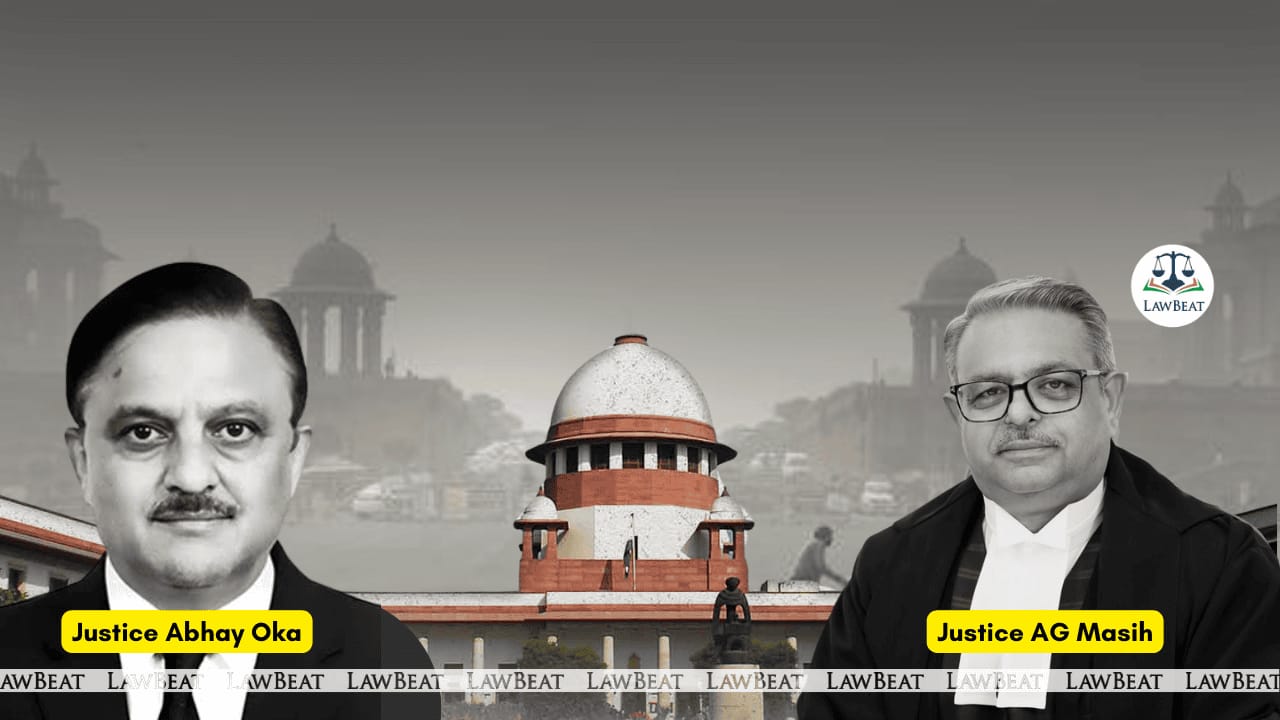'Nobody Bothered About Implementation': SC Orders GRAP IV Measures to Continue in Delhi NCR Amid Worsening Air Quality

The top court was also informed about an India Today report wherein farmers were asked to burn crops after 4:00 pm to avoid satellite detection
While noting the failure of authorities to implement measures, the Supreme Court of India today made it clear that all Graded Response Action Plan (GRAP) stage 4 measures, except for the measures modified with respect to schools, will continue to operate until Monday.
"...We have taken a glance at the second report by the court commissioners. What first report indicates is that there is abject failure of various authorities to implement GRAP IV measures. There are violations pointed out in both reports. We expect states to make a statement before us about the action they propose to take in case of breaches which are specifically pointed out by the commissioners..., "Justice Abhay S. Oka led-bench said.
As the bench expressed dissatisfaction over the failure of authorities to implement GRAP 4 measures, it accordingly directed the CAQM to hold a meeting and provide suggestions regarding the transition from GRAP 4 to GRAP 3 or GRAP 2, adding that it is not necessary for all measures in GRAP 4 to be dispensed with. The court said there can be a combination of measures from GRAP 3 and GRAP 4.
The top court's bench, also comprising Justice Augustine George Masih, noted that according to the compliance report filed by the CAQM, show-cause notices had been issued to various functionaries for taking action under Section 14 of the CAQM Act.
During the hearing today, the court went through the compliance report submitted by the commission and remarked, "Hardly anything was done by the police. Complete failure." The court also highlighted that the authorities failed to stop the entry of trucks in the NCR region.
Notably, on Monday, the Apex Court had refused to relax the Graded Response Action Plan (GRAP)-IV measures put in place to curb the worsening air quality. However, the court had directed the CAQM to reassess the restrictions placed on physical classes of schools, colleges, and educational institutions, which were suspended last week.
On 23 November, the Supreme Court had appointed 13 members of the Bar as court commissioners to visit the truck entry points and verify whether it was being enforced properly.
A week back, the Supreme Court had issued a circular advising all to ensure the wearing of masks and taking health measures as the air quality is worsening in the Delhi NCR region.
Recently, the Supreme Court had directed all governments in the NCR region to strictly implement Stage 4 of the Graded Response Action Plan (GRAP).
While emphasising that the GRAP 4 will remain in force even if AQI drops below 400, the same bench had observed, "The learned amicus stated that AQI crossed 400 on 12 November. Instead of immediately invoking Stage 3, the Commission directed its implementation from 14 November. The same is the case with stage 4 which was implemented on November 17."
On 11 November, the court had expressed surprise over the delay in imposing the firecracker ban, noting that 'no religion promotes any activity that contributes to pollution or compromises the health of people."
The Supreme Court had while taking note of rampant stubble burning, upheld the right to a pollution-free environment while observing that 'stubble burning is not merely a violation of law but an infringement of the fundamental rights guaranteed under Article 21 of the Constitution.'
In November last year, the Supreme Court had pulled up the governments of Punjab, Rajasthan, Haryana, and UP, asking them to immediately stop stubble burning.
In reference to the worsening of the condition in Delhi NCR, the Supreme Court had remarked that a huge number of taxis were found on Delhi roads, with only one passenger onboard.
Supreme Court had also refused to interfere with the blanket ban imposed by it on the production and sale of firecrackers including green crackers in the Delhi NCR region. The court had further told the Delhi Police that filing cases against people who burn firecrackers may not help in curbing the sale of firecrackers.
Earlier, the apex Court had reiterated the directions issued by the Supreme Court, including banning the use of Barium Salts in the firecrackers and manufacturing and selling joined firecrackers and other directions issued by the Court.
In addition to this, the bench had said, "We are not against any community we want full implementation of orders. We are not against the festivals but we cannot play with the right to life of others."
Case Title: MC Mehta vs. Union of India
